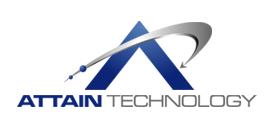The Gap Between Awareness and Action
Business leaders across New England recognize the potential of emerging technologies like artificial intelligence (AI), predictive analytics, and the Internet of Things (IoT) to enhance operations, reduce downtime, and improve decision-making.
However, despite this awareness, many small to mid-sized businesses in industries such as construction, manufacturing, and services have yet to fully integrate these tools into their operations. The challenge lies not in understanding the benefits but in navigating the complexities of adoption.
Artificial Intelligence: High Interest, Limited Integration
AI has become a focal point for businesses aiming to streamline processes and gain competitive advantages. Tools like ChatGPT, Microsoft Copilot, and AI-driven analytics platforms offer opportunities for automation and enhanced insights.
According to McKinsey’s 2024 Global AI Survey, 65% of organizations report regular use of generative AI, nearly doubling the adoption rate from just ten months prior.
Despite this surge in interest, many New England businesses remain in the exploratory phase, uncertain about how to scale AI solutions effectively and measure return on investment.
The Internet of Things (IoT): Untapped Potential
IoT technologies—such as sensor-equipped machinery, GPS-tracked equipment, and real-time monitoring systems—offer the promise of increased efficiency and proactive maintenance.
For many regional businesses, the transition from traditional methods to IoT-enabled systems is hindered by concerns over complexity, cost, and workforce readiness.
Predictive Analytics: Data-Rich but Insight-Poor
Predictive analytics can forecast equipment failures, optimize supply chains, and anticipate market trends. However, the effectiveness of these tools depends on the quality and integration of data systems.
Deloitte’s 2024 State of Generative AI in the Enterprise report highlights that 75% of surveyed organizations have increased their investments in data lifecycle management due to generative AI, underscoring the importance of robust data infrastructure.
Without clean, accessible, and well-managed data, businesses struggle to leverage predictive analytics effectively, leading to missed opportunities and reactive decision-making.
The Consequences of Inaction
Failing to adopt and integrate these technologies can result in decreased competitiveness, higher operational costs, and diminished customer satisfaction.
In a region known for innovation and resilience, New England businesses must overcome barriers to technology adoption to maintain their market positions.
Overcoming Barriers to Adoption
The primary obstacles to implementing new technologies include:
- Complexity: Navigating the myriads of available solutions can be overwhelming.
- Cost: Concerns about the financial investment required for new systems.
- Workforce Readiness: Ensuring employees are trained and comfortable with new tools.
- Data Management: Establishing robust data governance and infrastructure.
Addressing these challenges requires a strategic approach, focusing on incremental implementation, employee engagement, and leveraging expert partnerships.
A Strategic Path Forward
For New England businesses aiming to embrace technological advancements:
- Identify Specific Needs: Focus on areas where technology can address immediate challenges.
- Start Small: Pilot projects can demonstrate value and build confidence.
- Invest in Training: Equip your workforce with the skills needed to utilize new tools effectively.
- Partner with Experts: Collaborate with organizations experienced in technology integration.
By taking deliberate, informed steps, businesses can transition from awareness to action, unlocking the benefits of modern technologies.
Conclusion: From Awareness to Implementation
Recognizing the potential of AI, IoT, and predictive analytics is only the first step. The real value lies in effective implementation. The companies that stay on top of these trends are the ones that are going to thrive. The ones that don’t? They’ll be running behind the train, wishing they got on sooner.
At Attain Technology, we specialize in guiding New England businesses through the complexities of technology adoption, ensuring solutions are tailored, scalable, and impactful.
Want to make sure your business is ready for the future?
We want to make sure that your business doesn’t let these opportunities to boost your productivity and efficiency slip through the cracks. We’ll offer our strategic guidance and help your business navigate these trends without missing a beat.
Give us a call today:
📞: 508-459-8845
OR
Schedule a Call With Us: www.attaintechnology.com/discoverycall
Additional Resources:
The State of AI in 2024 – McKinsey
What’s Next for AI? – Deloitte


